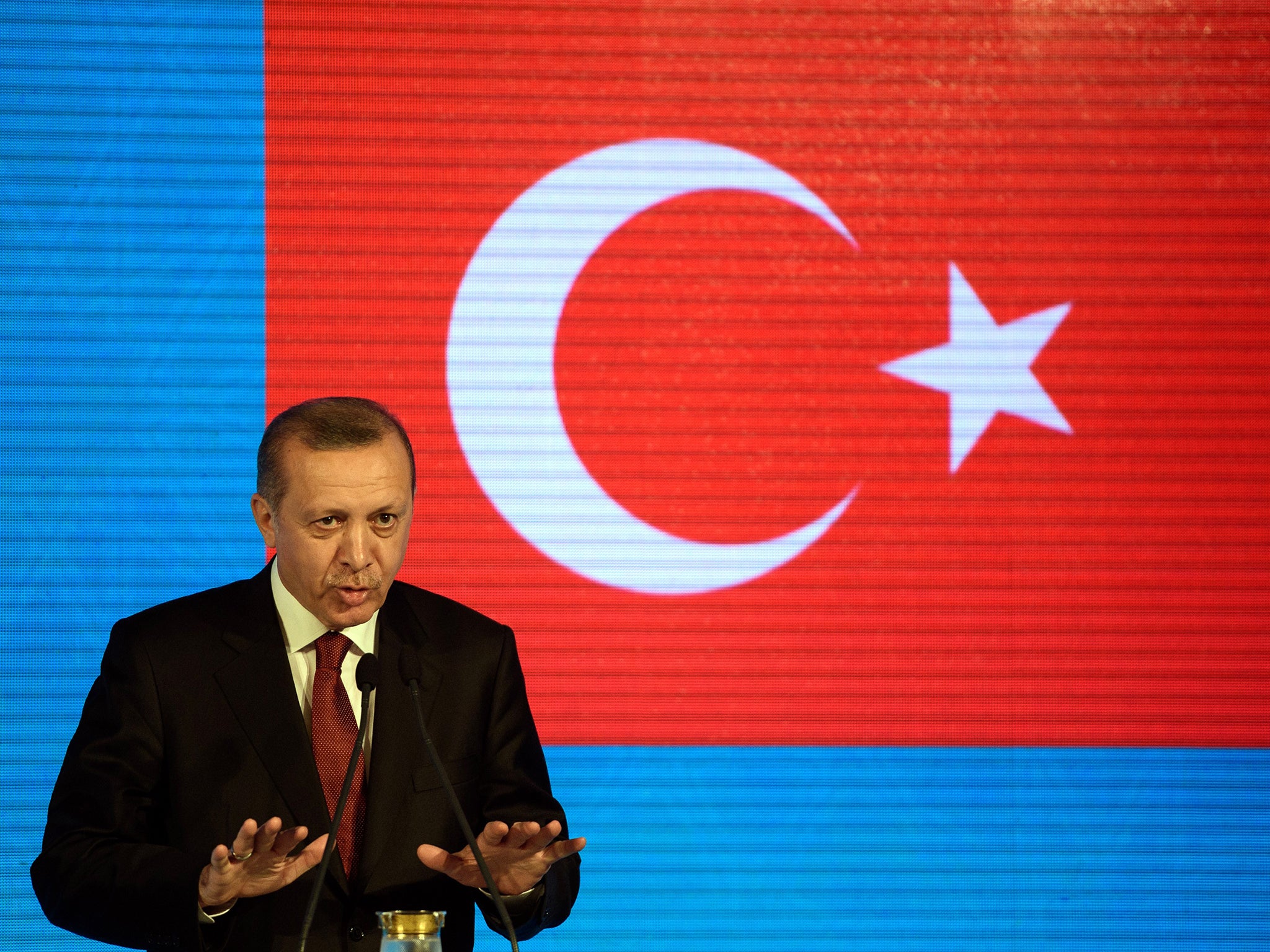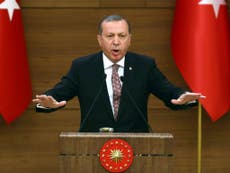Turkey's President Erdogan is crushing dissent. As protectors of satire, Brits must fight for it
His successive election victories led to Turkey being held up as a beacon for Islamic democracy. Now Erdogan has become impregnable


It is the well-known paradox of revolutions that their leaders, having railed against the dominance of existing elites, often end up craving the kind of absolute power they once sought to overthrow.
Turkey’s President Recep Tayyip Erdogan was once a revolutionary of sorts, standing for Islamist influence in mainstream politics against an establishment which regarded the Westernisation and secularisation of the country by Ataturk and his successors as inviolable facts of life. By gaining popular support for the Justice & Development Party (AKP) he founded in 2002, Erdogan was able to challenge the status quo by using the very democratic institutions the elites claimed to represent and stand for.
Successive election victories led to Turkey being held up as a beacon for Islamic democracy.
Yet when Erdogan was elected President in 2014, following a decade as Prime Minister, it seemed clear that he intended to expand the role of his new office, which had previously been largely ceremonial. A taste of power only whets the appetite for more, it seemed.
Just as Erdogan frequently used the judiciary to stifle the influence of old elites (including the military) during his tenure as prime minister, so he increasingly sought to tackle journalists and satirists by recourse to an ever-more amenable legal system.
Since he became President, more than 1,800 prosecutions have been launched against people alleged to have insulted him. In March, the Zaman daily newspaper was placed under the control of “trustees” following a court ruling – the practical effect was to place a popular organ of dissent under the control of the state.
Then, earlier this month, Erdogan demanded the prosecution in Germany of a TV presenter, Jan Böhmermann, who had allegedly defamed the Turkish President in a comedic poem.
The article of the German criminal code which Erdogan and his advisers had managed to sniff out – which relates to insults against representative of foreign states – was so little-used that many German lawyers hadn’t heard of it. Angela Merkel, who finds herself in something of a conundrum, has agreed that a prosecution can advance. The assumption is that the courts will throw the case out – but the law can be a Dummkopf, so only time will tell.
Having got his way in Germany, Erdogan has moved on to a new target. On Sunday, a Dutch journalist of Turkish origin, who had criticised the President in a newspaper in the Netherlands, was arrested while holidaying in western Turkey. She has been barred from leaving the country.
Given the UK’s reputation for libel tourism, one wonders when Erdogan’s tentacles will find their way here. At least Britain has a reputation for protecting satire.
In 2003, the Israeli Prime Minister complained about a cartoon in The Independent by Dave Brown, which depicted him biting the head off a Palestinian child. The Press Complaints Commission rejected the complaint, noting that – while the item might have caused offence – it was “reluctant to come to a decision that would in any way compromise the ability of newspapers to make critical or satirical comments about nations or governments through the use of cartoons”. Long may that sentiment be shared by our courts and regulators, in the event that Erdogan comes calling.
His position in Turkey meanwhile seems impregnable. He crushes dissent where it arises, while using internal and external security fears to bolster his popularity.
Turkey’s critical position both as the potential gateway to Europe for millions of refugees, and as a base for NATO forces involved in attacks against Isis, mean that the West has an interest in its stability. Indeed, the tolerance of Erdogan’s totalitarian behaviour by Western leaders is as depressing as his own autocratic approach.
In 1998, Erdogan served a jail term for inciting religious hatred. His crime? Reading a supposedly inflammatory poem at a political rally.
The boot is now firmly on the other foot, and is being heavily used as Erdogan attempts to stamp out any flickers of free expression in Turkey and beyond. As in any revolution, what goes around...



Join our commenting forum
Join thought-provoking conversations, follow other Independent readers and see their replies